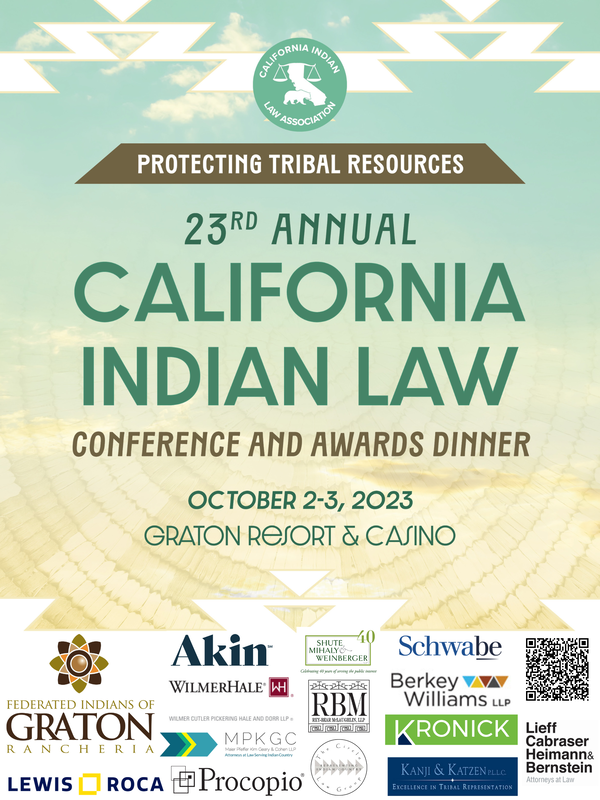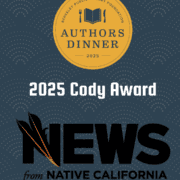
The 2023 California Indian Law Conference celebrates “Protecting Tribal Resources” and the dedicated legal professionals working towards this goal
By Tavi Lorelle Carpenter
The start of October began with the California Indian Law Association (CILA) holding their annual conference, hosted by the Federated Indians of Graton Rancheria (FIGR) at their Resort and Casino in Rohnert Park. CILA “is dedicated to enhancing the legal profession and Tribal jurisprudence in California” according to their website. In simpler terms, they are a community of legal professionals who are committed to protecting the rights of California Indian tribes and people. They are also determined to support law students in their pursuit of becoming advocates for Indian country. Through the sponsorship of FIGR, I was fortunate enough to attend the panels and awards ceremony on Monday, October 2nd.
The day began with Chairman Greg Sarris (FIGR) welcoming CILA and the conference attendees, including a group of law students from UCLA that are currently utilizing the Graton Scholarship for students pursuing legal careers in American Indian law. During his welcoming address, Chairman Sarris stressed the importance of working together and the way organizations like CILA support this through their shared goal of empowering California Indian tribes. Chairman Sarris noted that it was through unity that we build stronger communities that support all California Indian people.
After welcoming remarks, the first panel of the day was introduced by Xavier Barazza (enrolled member of the Hopland Band of Pomo Indians, current Member Engagement and Recruitment Committee Co-Chair for CILA) and acted as a legislative update with Jacob Meija (Vice President of Public and External Affairs for Pechanga Development Corporation and executive director of the Tribal Alliance of Sovereign Indian Nations) and Josh Clause (Citizen of the Mohak Nation, Clause Law PLLC). This update was dedicated to reflecting upon current legislation from both a federal and state level, that related back to American Indian tribes and people.
This included a reflection on the importance of representation as it was noted that the California legislature is currently amongst the most diverse in history. Including the first representative of California Indian descent, Assemblymember James Ramos. It was noted that of the bills related to California Indian people, 72% were brought by Assemblymember Ramos. This highlights the necessity for there to be Native voices within local, state and federal political spaces to offer insight into the issues and needs that are central to Native people.
The litigation update was introduced by Nazune Menka (Denaakk’e & Lumbee, Treasurer for CILA) and featured Angela Riley (Citizen of Potawatomi Nation, Professor of Law at American Indian Studies at UCLA), Charles Galbraith (Citizen of Navajo Nation, Jenner & Block LLP) and Denise Turner Walsh (Attorney General of the Rincon Band of Luiseño Indians). This update reflected on the most significant cases for tribes both within California and more broadly across the country. The cases mentioned, including the well known supreme court decision Haaland v. Brackeen, offered insight into the challenges tribal sovereignty faces going forward.
After these updates, it was time for lunch where the Keynote address was given by long time veteran lawyer Les Marston as he unpacked the Ninth Circuit Court of Appeal decision regarding the Chicken Ranch Rancheria of Indians V. California. This decision “clarified the permissible boundaries of class III gaming compact negotiations between state and tribes under the Indian Gaming Regulatory Act” according to CILA’s agenda for the day. Mr. Marston explained in detail how he approached this case offering tangible advice for the lawyers and law students in attendance. But what was perhaps the most moving was his own reflection on his time as a lawyer. During the early days of his career, he was only one of a handful of American Indian lawyers in the country. In a very inspiring moment, he acknowledged the law students in the room, noting the importance in their decision to pursue Indian law. He ended with a call to action reminding all that this fight for sovereignty and for the rights of American Indian people is the good fight, the true fight and the honorable fight. A truer sentiment has never been more resonant.
After lunch, came a panel entitled: “Post-Brackeen”, an update and guide for legal professionals looking at the challenges and successes from this supreme court decision. Moderated by Shunya D. Wade (Muscogee [Creek] Nation of Oklahoma, Vice President of CILA), this panel featured Michelle Castagne (Anishinaabe, California Tribal Families Coalition), Stephanie Weldon (Yurok, Tribal ICWA and Social Services consultant for the California Department of Social Services, Center for Tribes) and Michele Fahley (Berkeley Williams LLP, Chief Judge for the Pala Band of Mission Indians’ Tribal Court). The Brackeen decision was a moment of celebration. After the tireless efforts of so many, whether it was through the legal system or even on social media spreading awareness, ICWA was upheld, upholding sovereignty and most importantly ensuring that our Native children are protected. However, this panel highlighted that while Brackeen is a win to be celebrated, it is not the end and one cannot let their guard down. Keeping vigilante was the advice from the panel and different practitioner options were presented, such as adopting or strengthening State ICWA laws. It also highlighted the California Department of Social Services (CDSS) Office of Tribal Affairs highlighting the role their office plays in providing advice to “build better government-to-government relationships between CDSS and California Indian Tribes, Counties, and Tribal Governments” (quoted from their slideshow presentation). This served as a reminder that it takes many people serving in different capacities working together to problem solve important nuanced issues such as the welfare of Native children.
The final panel was moderated by Xavier Barraza and included Scott Quinn (Karuk, Director of Tribal Lands Management for the Karuk Tribe), Charmaine McDarment (Tule River Indian Tribe, General Counsel and legal advisor for Tule River Indian Tribe) and Sara Dutsschke (Ione Band of Miwok Indians, Chairperson for the Ione Band of Miwok Indians and partner at Kaplan Kirsch Rockwell) and looked at Fee-to-trust in California. This panel discussed the complicated task of navigating the process of tribes regaining ancestral lands through fee-to-trust negotiations. It became clear that this is far from an easy task often taking years, at times decades for this process to come to fruition but it could also lead to nothing. The panel offered insight into how the panelists have approached and handled the convoluted negotiations surrounding fee-to-trust while highlighting how absurd the convolution is. Because it is absurd that tribes are forced to buy back their own land that was violently stolen. It’s even more absurd that if that land is toxic due to historical circumstances such as the Gold rush or other harmful actions taken by settler-colonists, the tribe is responsible for ensuring the land is non-toxic before it can be put into trust. We have made strides and there are so many dedicated people working for their communities (and allies!) but this final panel really highlighted that there is still work to be done.
There was a short break before the celebratory part of the night began. When we returned to the banquet hall, the Master of Ceremonies, Judge Christine Williams of the Yurok Tribe, was a welcoming presence. She was a great MC, very personable and engaging.
With their own scholarship program*, CILA had quite a few students in the audience that Judge Williams brought on stage to celebrate their hard work and commitment to serving as the next generation of lawyers and leaders. A hopeful moment that emphasized the importance of community that CILA cultivates.
Every year, CILA awards two honorees with the Outstanding Achievement in California Indian Law Award and Outstanding Young Attorney Award, celebrating the extraordinary achievements legal professionals and lawyers have made in services to California Indian people.
This year, Dawn Sturdevant Baum was awarded the Outstanding Achievement award for her dedication and commitment to her work as General Counsel for the Yurok Tribe. Loretta Miranda (Morongo Band of Mission Indians, CILA Board of Directors) commented: “Dawn was an excellent attorney, mentor and friend. As a prominent member of the CILA community, Dawn impacted generations of Attorneys with her mentorship and encouragement both inside and outside of California. Dawn was a fierce advocate for tribal sovereignty and a powerful force for justice. Universally admired for her kindness and generous spirit, Dawn’s legacy will stay with us forever”.
Ms. Baum had most tragically passed away last June, her brother accepted her award. Sitting in the ballroom, one could feel the immense outpouring of love people had for Ms. Baum as her legacy was honored and celebrated. It was a reminder that it only takes one person to have such a profound impact.
Janet K. Bill was the recipient of the Outstanding Young Attorney award being honored for her “substantial impact in advancing the interests of Tribal Communities in California”, in particular, her work in addressing MMIP (Missing and Murdered Indigenous People). Cheyenne Sanders (citizen of the Yurok Tribe, CILA Board of Directors) commented that “Chairperson Bill is always the first to roll up her sleeves and get work done. As a lawyer, Chairperson Bill has shown us what a great advocate she has become for her Tribe, the State and Indian Country as a whole”.
The final speech was given by Assemblyman James Ramos who started by singing his traditional songs and ended with a fiery, passionate speech repeating the sentiment of the day: our strength comes when we are united, uplifting each other, and prioritizing community.
Walking out of the Graton Casino into the cool October night, I was struck by how encouraging it felt to know that though there were many hurdles and challenges down the road, there was also a powerful group of men and women working together for California Indian people, our unalienable right to sovereignty.
–
*Information regarding the CILA Scholarships and recipients can be found: https://calindianlaw.org/scholarships.html
For more information about the California Indian Law Association, visit: https://www.calindianlaw.org/



